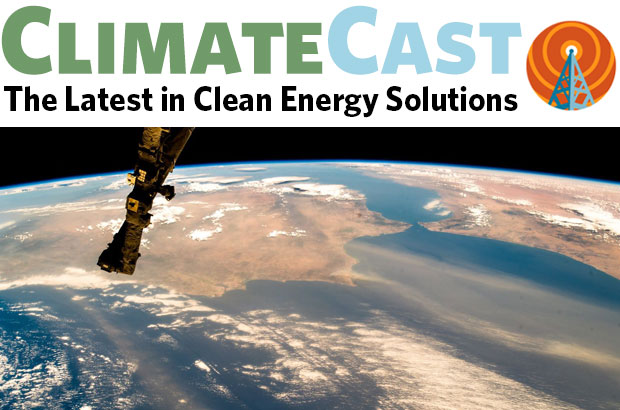Cities and countries pledge 100% clean energy while costs of renewables plummetsCities and countries across the world are finding it easier to commit to a clean energy future as the price of renewables and battery storage continues to fall. In Washington State, the House of Representatives approved a bill that would see Washington’s electricity grid run on 100 percent clean energy by 2045. The bill now faces one more vote in the Senate. Some cities in Washington are already on their way to creating a clean energy future; the City of Everett voted last week to run on 100 percent clean energy by 2045. Chicago also made history last week by becoming the largest U.S. city to commit to 100 percent renewable energy. That city’s buildings will run fully on renewables by 2035, and the city's bus fleet will be completely electric by 2040. Finally, the Governor of Puerto Rico has signed a landmark law to spur clean energy development and make the island run on 100 percent clean energy by 2050. EV sales are climbing—even outselling gas cars in some instancesThe first electric buses are hitting the road in the Portland region, the first step in the local transit agency, TriMet, transitioning to an all diesel-free bus fleet by 2040. Last month, electric vehicles in Norway outsold fossil fuel-powered vehicles for the first time. British Columbia has introduced new legislation that would require all cars and trucks sold there to emit zero-emissions by 2040. In the U.S., a bipartisan group of lawmakers has introduced a bill to expand the federal EV tax credit. As electric vehicle sales climb, utilities are stepping up to meet the increased need, building additional EV charging stations across the country. Consumer Reports announced that a host of new, longer range, affordable EVs will soon be coming to market. Carbon pricing around the worldPutting a price on carbon as a strategy for reducing emissions is really catching on. Germany is considering a carbon tax, and Canada has begun imposing a carbon tax on the four provinces that refused to participate in the pan-Canadian climate framework. In the U.S., several major corporations including Nestle, Mars, and Unilever have formed an alliance to urge the federal government to implement a carbon pricing plan aligned with the goals of the Paris Climate Accord. On the state level, Oregon’s Clean Energy Jobs bill continues its momentum in the Oregon legislature, with amendments being considered to strengthen the program. Finally, the New York Times recently published a broad overview of which countries currently have carbon pricing programs, and how well they’re working. The costs of climate inaction are too high to ignoreA scientific study at the EPA has found that by the end of the century, unchecked climate change would cost the U.S. hundreds of billions of dollars per year. Costs come from global water shortages, damaged infrastructure, and polluted air that shortens lives. It would also be expensive for business, as modeling shows that a three degree Celsius increase would damage multiple sectors, including the financial, agriculture, industrial and consumer staples sectors. Another report shows how investors and big real estate firms are calculating climate risks, and how these risks will impact property portfolios. The feedback loop of climate impactsA new study shows that Europe’s extreme summer heat last year would not have been possible without global warming, and satellite photos highlight how climate change is affecting Europe. The Arctic is warming about twice as fast as other parts of the world, and in Alaska, temperature records have been set across the state, including a day in March that was 30 degrees above normal. Increasing temperatures are having a major impact on glaciers, and is pushing the Arctic’s biophysical system toward an "unprecedented state.” New findings show that air pollution will shorten the life span of children by 20 months on average, and will most gravely impact children living in South Asia due to the burning of coal and other fossil fuels. Wildfires are also creating air toxics, as wiring, plastic pipes, building materials, lead paint, asbestos and appliances are burned. In brief: How do you determine who is a climate refugee?There is currently no legal recognition of what it means to be a climate refugee. But as people flee their homeland because of droughts, floods, and extreme weather events, it becomes increasingly clear that climate change is a factor in determining whether some people relocate. |
Image

Renewables and the cost of climate inaction



